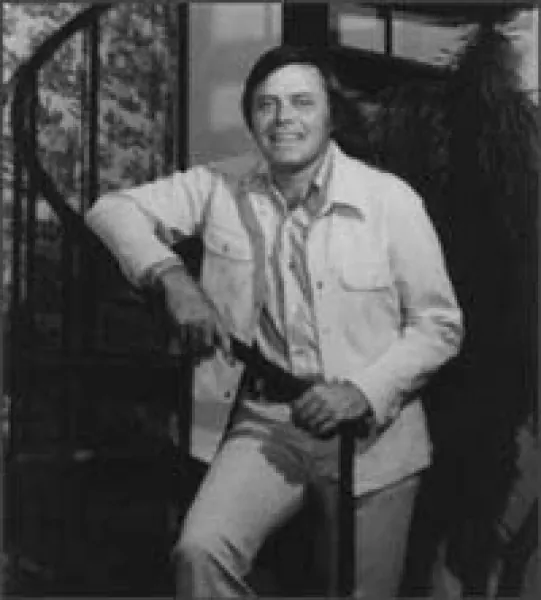
Tom T. Hall
Top Tom T. Hall albums
Top Tom T. Hall lyrics
Back When Gas Was Thirty Cents A Gallon
Tom T. HallTom T. Hall biography
Tom T. Hall is known as a storyteller, a songwriter with a keen eye for detail and a knack for narrative. Many musicians have covered his songs -- most notably Jeannie C. Riley's 1968 hit "Harper Valley P.T.A." -- and he also has racked up a number of solo hits, including seven number one singles.br /br /Hall is the son of a bricklaying minister, who gave his child a guitar at the age of eight. He had already begun to write poetry, so it was a natural progression for him to begin writing songs. Hall began learning music and performing techniques from a local musician called Clayton Delaney. At the age of 11, his mother died. Four years later, his father was shot in a hunting accident, which prevented him from working. In order to support himself and his father, Hall quit school and took a job in a local garment factory. While he was working in the factory, he formed his first band, the Kentucky Travelers. The group played bluegra** and gigged at local schools as well as a radio station in Morehead, KY. The station was sponsored by the Polar Bear Flour Company; Hall wrote a jingle for the company. After the Kentucky Travelers broke up, Hall became a DJ at the radio station.br /br /In 1957, Hall enlisted in the Army and was stationed in Germany. While in Germany, he performed at local NCO clubs on the Armed Forces Radio Network, where he sang mostly original material, which usually had a comic bent to it. After four years of service, he was discharged in 1961. Once he returned to the States, he enrolled in Roanoke College as a journalism student; he supported himself by DJing at a radio station in Salem, VA. br /br /One day a Nashville songwriter was visiting the Salem radio station and he heard Hall's songs. Impressed, the songwriter sent the songs to a publisher named Jimmy Key, who ran New Key Publishing. Key signed Hall as a songwriter, bringing the songs to a variety of recording artists. The first singer to have a hit with one of Hall's songs was Jimmy Newman, who brought "DJ for a Day" to number one on the country charts in 1963. In early 1964, Dave Dudley took "Mad" to the Top Ten. The back-to-back success convinced Hall to move to Nashville, where he was going to continue his career as a professional songwriter.br /br /After Johnnie Wright had a number one hit with Hall's "Hello Vietnam," the music industry was pressuring Tom to become a performer. He decided to take the plunge in 1967, signing a contract with Mercury Records. His first single, "I Washed My Face in the Morning Dew," was released in the summer of 1967 and became a minor hit. Hall followed the single with two other singles in 1968 that failed to crack the Top 40. Then, in the late summer of 1968, Jeannie C. Riley had a major hit with Hall's "Harper Valley P.T.A.," which spent three weeks at the top of the charts and was voted the Single of the Year by the Country Music Association. Its success brought attention to Hall's own recording career, which was evident from the performance of "Ballad of Forty Dollars." The song became his first Top Ten hit, climbing all the way to number four.br /br /Throughout 1969, he had a string of hit singles, culminated by the release of the number one single "A Week in a Country Jail" at the end of the year. The following year was just as successful, as "Shoeshine Man" and "Salute to a Switchblade" both hit the Top Ten. In 1971, he had his second number one single and his biggest hit, "The Year That Clayton Delaney Died," which was based on his childhood hero.br /br /For most of the early '70s, Hall was a consistent hitmaker as well as a popular concert attraction. Between 1971 and 1976, he had five number one hits besides "The Year That Clayton Delaney Died": "(Old Dogs-Children And) Watermelon Wine," "I Love," "Country Is," "I Care," and "Faster Horses (The Cowboy and the Poet)." Hall was appearing on television shows with regularity during this time, particularly Hee Haw. He also wrote a book on songwriting, which led to his authorship of a pair of books in the late '70s and early '80s -- the semiautobiography The Storyteller's Nashville (1979) and the novel The Laughing Man of Woodmont (1982).br /br /Although he continued to have the occasional Top Ten hit in the late '70s -- most notably the number four "You Man Loves You, Honey" (1977) -- Hall didn't deliver hit singles as consistently as he did the first half of the decade. That pattern continued in the early '80s, when he began having trouble cracking the Top 40; only 1984's "P.S. I Love You," a cover of a 1934 Rudy Vallee hit, made it into the Top Ten. After 1986, Hall retired from recording, although artists continued to record his songs. In 1996, he delivered Songs From Sopchoppy, his first album in ten years. ~ Stephen Thomas Erlewine, All Music Guide
